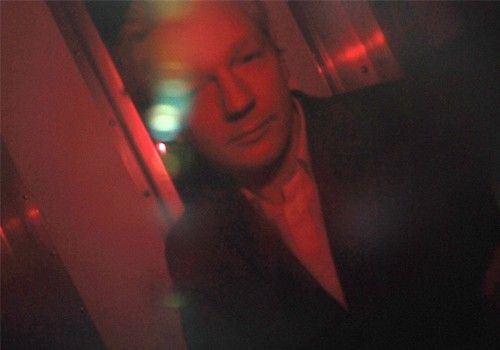Wikileaks founder Assange granted bail after London High Court turns down appeal

London's High Court, on Thursday, upheld a decision to free WikiLeaks founder Julian Assange, who has earned the ire of the U.S. government for releasing secret diplomatic cables, on bail.
High Court Justice Duncan Ouseley ruled on Thursday that the 39-year old Australian could be release on bail of 200,000 pounds ($317,000) but made a few changes to the bail conditions that a lower court had set on Tuesday.
Assange, who had turned himself in to police in London on Dec. 7 after Britain was served with a European warrant for his arrest, was granted bail by City of Westminster Magistrates' Court on Tuesday but had to remain in jail as British prosecutors had appealed to the High Court against the lower court's decision to grant bail.
Assange has been accused of sex crimes in Sweden. He is fighting an extradition to Sweden, where he is accused of having unprotected sex with a woman, despite her insistence to use a condom. He is also accused of committing sexual crimes against another woman while she was asleep. The British prosecutors are acting as the agents for the Swedish government, Britain's Director of Public Prosecutions told BBC radio.
Assange has denied the accusations. A full extradition hearing is set for early February.
In a bail hearing on Tuesday, Judge Howard Riddle had granted bail to the WikiLeaks founder. The bail conditions included electronic tagging and a bond of 200,000 pounds ($317,400) to be deposited in the court. Assange would also be required to report to a local police station every evening.
The court has also asked for a further 40,000 pounds in guarantees which would have to be paid were he to disappear.
On Thursday, Judge Ouseley said he did not see Assange as a flight-risk. He clearly does have some desire to clear his name because, if he were not to do so, the allegations would always be hanging over him, the judge said.
However, Ouseley said Assange must stay at a country house in eastern england owned by a wealthy supporter. Other changes to the bail conditions included the hours of the curfew Assange will be subject to, the boundaries of the area where he must stay, and adjustments to the hours during which he must report to police every day.
Prosecution lawyer Gemma Lindfield was disappointed with the court's decision as she felt that the nature of the alleged offences provided strong incentive for Assange to abscond. Moreover, he had no community ties in Britain, she said.
However, defense lawyer Geoffrey Robertson dismissed the concerns, saying Assange was never in hiding and Lindfield's concerns are sheer speculations.
Assange could leave custody as early as today as his supporters include prominent and affluent figures like U.S. filmmaker Michael Moore, film director Ken Loach Australian journalist John Pilger, fashion designer Bianca Jagger, and Jemima Khan, former wife of Pakistani cricketer Imran Khan.
Meanwhile, the founder of the whistle blowers' website, which has taken the world by a storm, has denied the charges and said they are politically motivated and designed to damage his reputations.
Assange's supporters are trying to raise money for the bail bond but money raising has become especially difficult after Visa, MasterCard and PayPal had blocked donations to his website.
Assange also claims U.S. prosecutors may be trying to indict him for publishing a trove of 250,000 U.S. diplomatic cables, including details of overseas sites that Washington regards as vital to its security. The Obama administration has made it clear it is considering charging Assange under the 1917 Espionage Act or other laws relating to his role in obtaining and publishing the stolen government material.
However, Lindfield said politics and Assange's activism have nothing to do with the case. She said that the charges against Assange are a simple case of credible allegations of rape being made against Assange by two women, and that he should be brought to Sweden to stand trial.
© Copyright IBTimes 2024. All rights reserved.





















